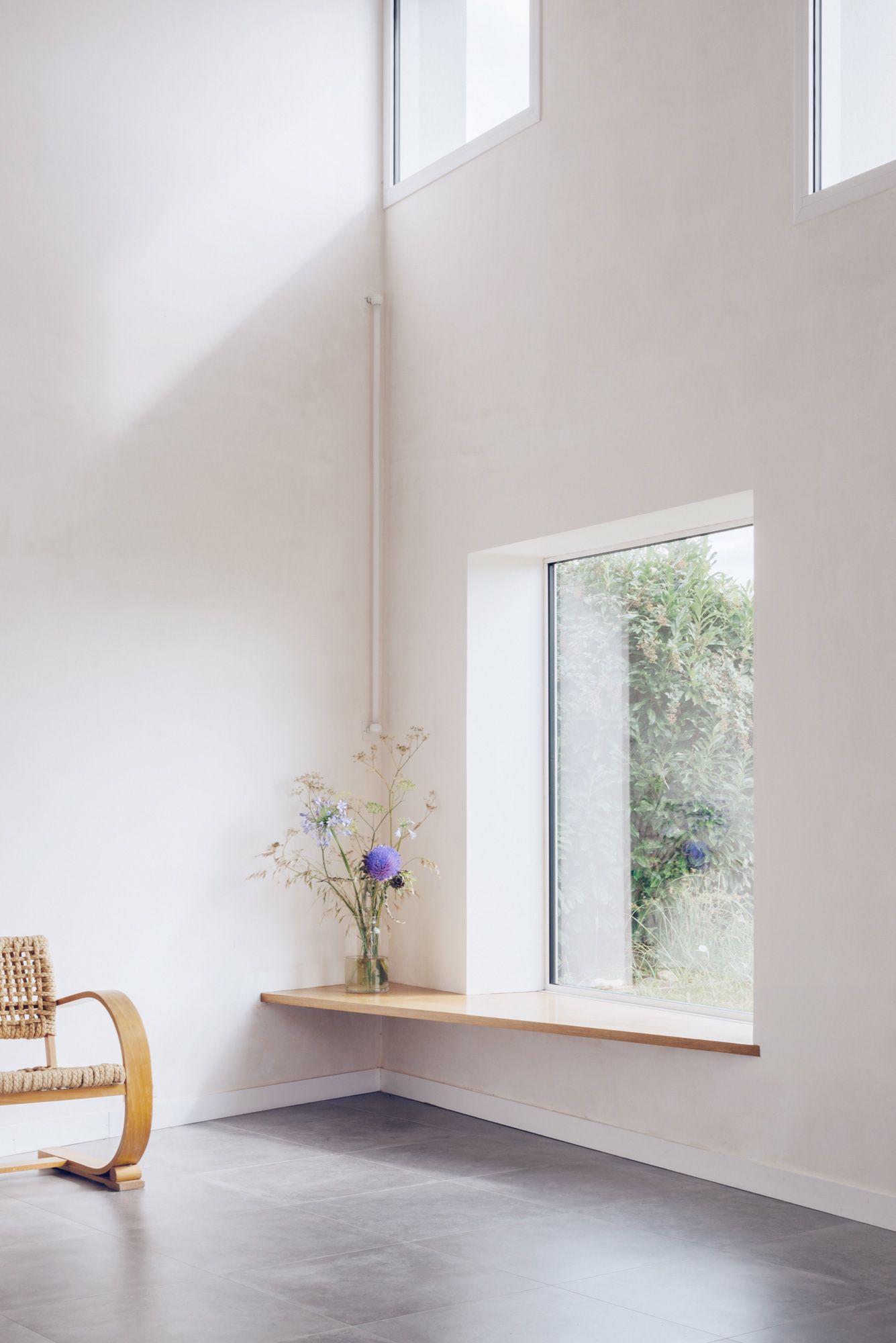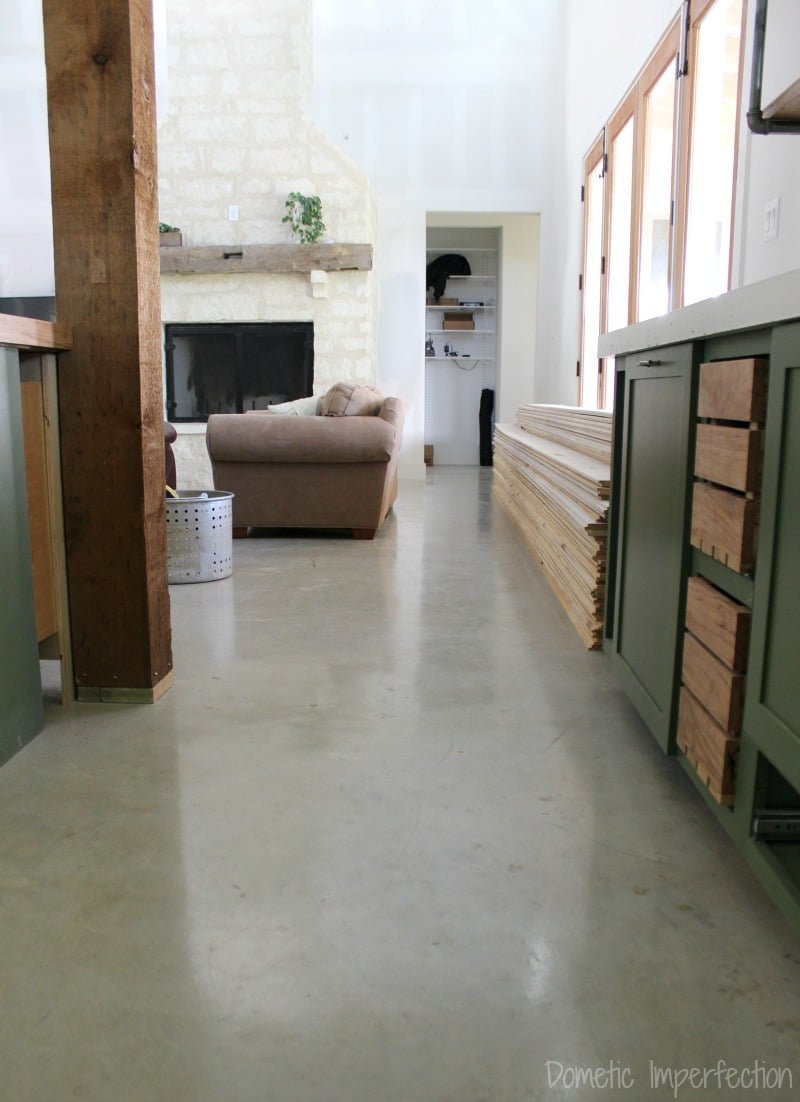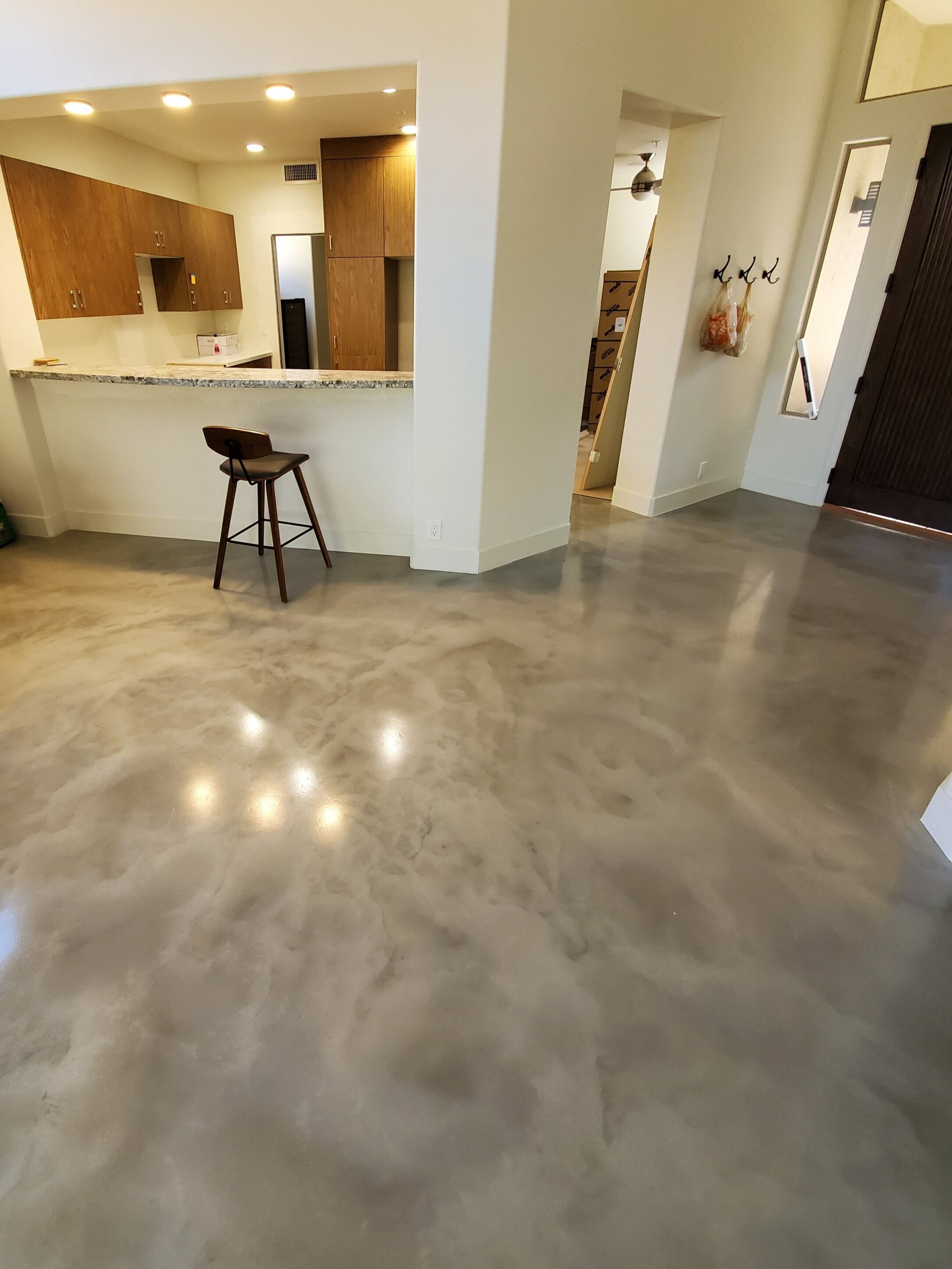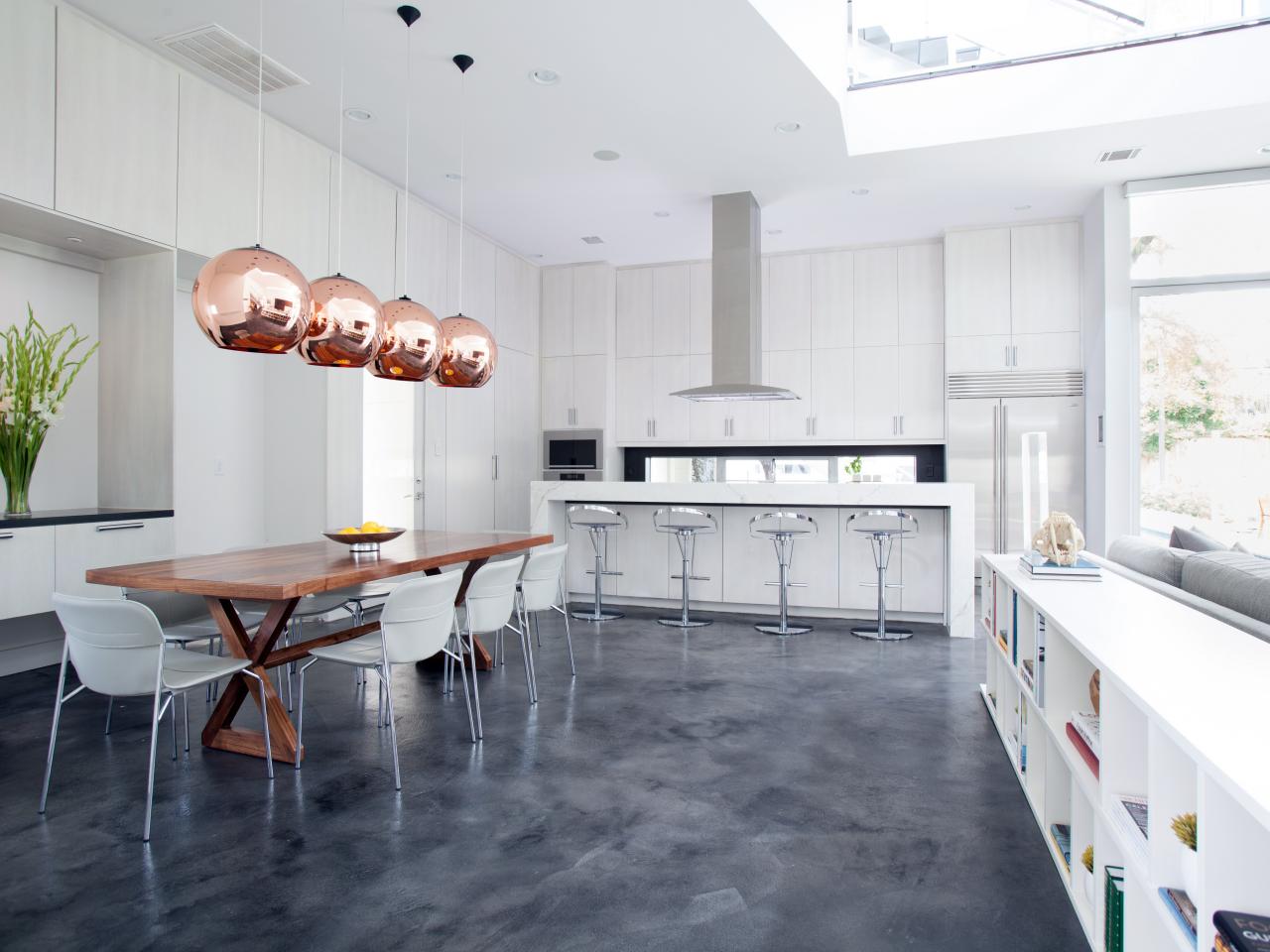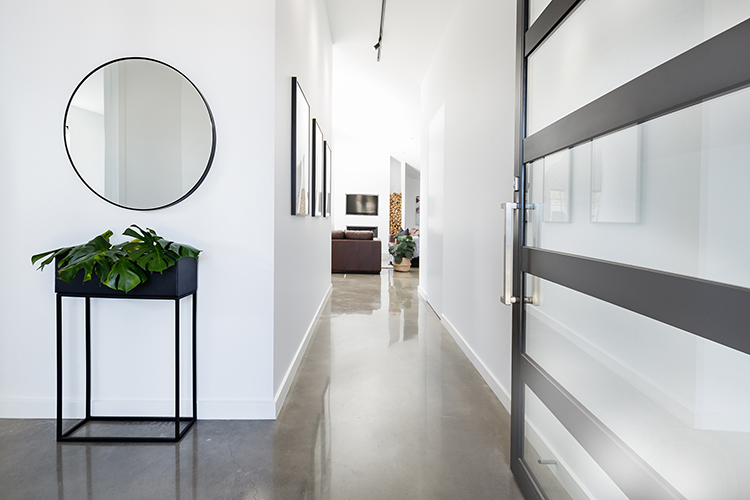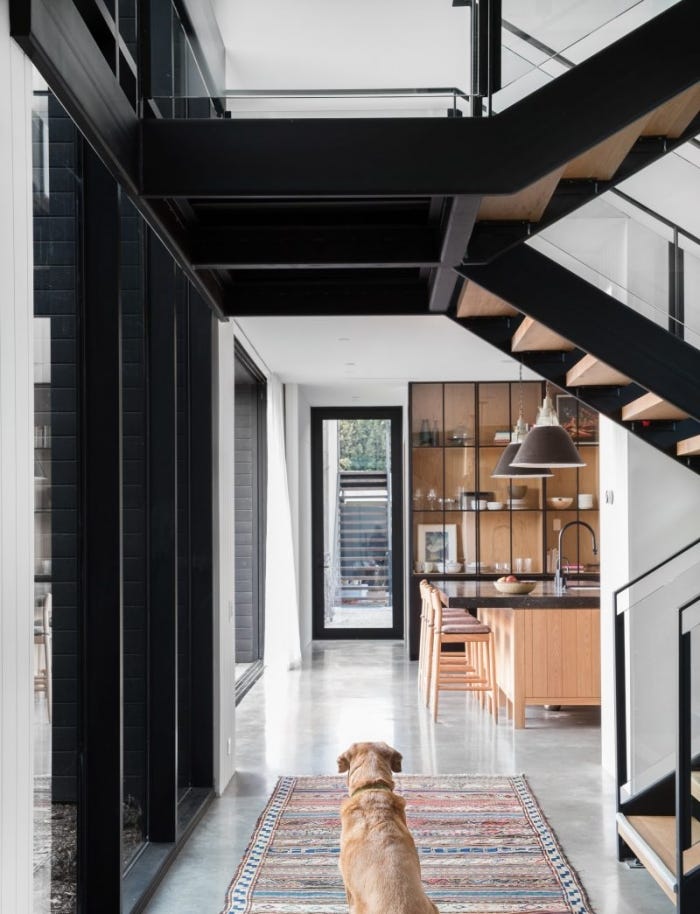If you’re in the market for new flooring, you might consider concrete flooring an option. While it may not be the first material that comes to mind when you think of home flooring, concrete is popular due to its durability and affordability. In this article, we’ll examine the pros and cons of installing concrete flooring in your home.
Pros of Concrete Flooring
- Durability: Concrete flooring is incredibly strong and can withstand heavy foot traffic and wear and tear.
- Affordability: Compared to other types of flooring, such as hardwood or tile, concrete is relatively inexpensive.
- Low Maintenance: Concrete flooring is easy to clean and requires little maintenance. Regular sweeping and mopping are all needed to keep it looking its best.
- Customizable: Concrete flooring can fit any style or design preference. You can choose from various colors and finishes to create a unique look.
Cons of Concrete Flooring
Hardness: While the durability of concrete is a plus, it can also be a downside. Concrete is a hard material that can be tough on your feet and legs if you stand on it for long periods.
Coldness: Concrete flooring can be chilly to the touch, making it less comfortable for barefoot walking during colder months.
Cracking: If the concrete isn’t installed properly, it can crack or chip over time.
Moisture: Concrete is porous and can absorb moisture, which can cause it to stain or become discolored.
Things to Consider Before Installing Concrete Flooring
Before you decide to install concrete flooring in your home, consider a few things. First, think about the style and design you’re going for. Concrete flooring can be stained or painted to fit your aesthetic, but if you’re looking for a specific pattern or design, you may want to consider another type of flooring.
Next, consider the amount of foot traffic the area will receive. Concrete flooring is durable, but if you’re installing it in a high-traffic area, you may choose a thicker slab or a more durable sealant.
Finally, think about the climate you live in. If you live in a colder climate, you may consider adding radiant heating to your concrete flooring to make it more comfortable during the colder months.
Installation and Maintenance Tips
Proper installation and maintenance are crucial for the longevity of your concrete flooring. Here are a few tips to keep in mind:
- Choose a high-quality concrete mix and sealant to ensure your floor lasts for years.
- Ensure the surface is properly prepared before installation to prevent cracking or chipping.
- Regularly sweep and mop your concrete flooring to keep it clean and debris-free.
- Seal your concrete flooring every few years to protect it from damage caused by water and other elements.
Concrete flooring can be a great option for those looking for durable, customizable, and affordable flooring. However, it’s important to weigh the pros and cons and consider your specific needs and preferences before deciding. With proper installation and maintenance, your concrete flooring can last decades and add value to your home.
Concrete Flooring Inside House
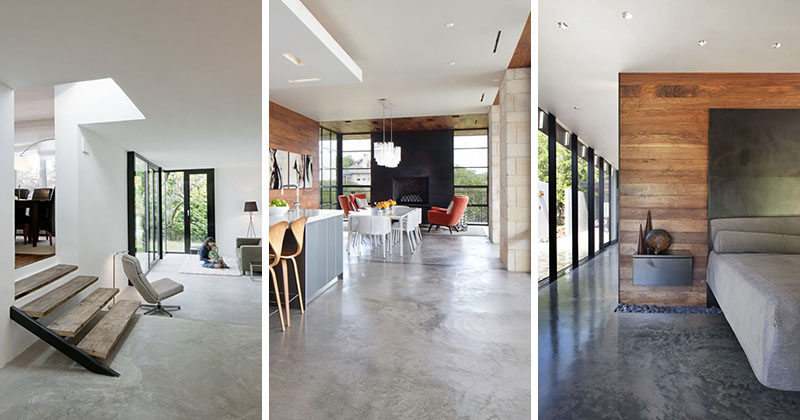
20 Stylish Concrete Floors Ideas – Inspiring Pictures and Examples
How to Pour a Concrete Floor Homebuilding
The Reason We Have Sealed Concrete Floors – Wildfire Interiors
Interior Concrete Floors – Phoenix, AZ u2014 Durable. Modern. Seamless.
How to Budget for Quality Decorative Concrete Floor Installation
How to Clean Concrete Floors HGTV
Pros And Cons Of Concrete Flooring
Concrete Flooring Stands Up to the Test in the Kitchen
10 Benefits of Atlanta Polished Concrete Floors u2014 Grindkings Flooring
20 Stylish Concrete Floors Ideas – Inspiring Pictures and Examples
Related Posts:
- Interior Concrete Floor Paint Ideas
- Concrete Floor Epoxy Crack Filler
- Concrete Floor Basement Ideas
- Painting Concrete Floor With Epoxy
- Outdoor Concrete Floor Paint Ideas
- Concrete Floor Painting Tips
- Outdoor Concrete Floor Finishes
- Non Slip Concrete Floor
- Concrete Floor Epoxy Coating
- Outdoor Concrete Floor Tiles
